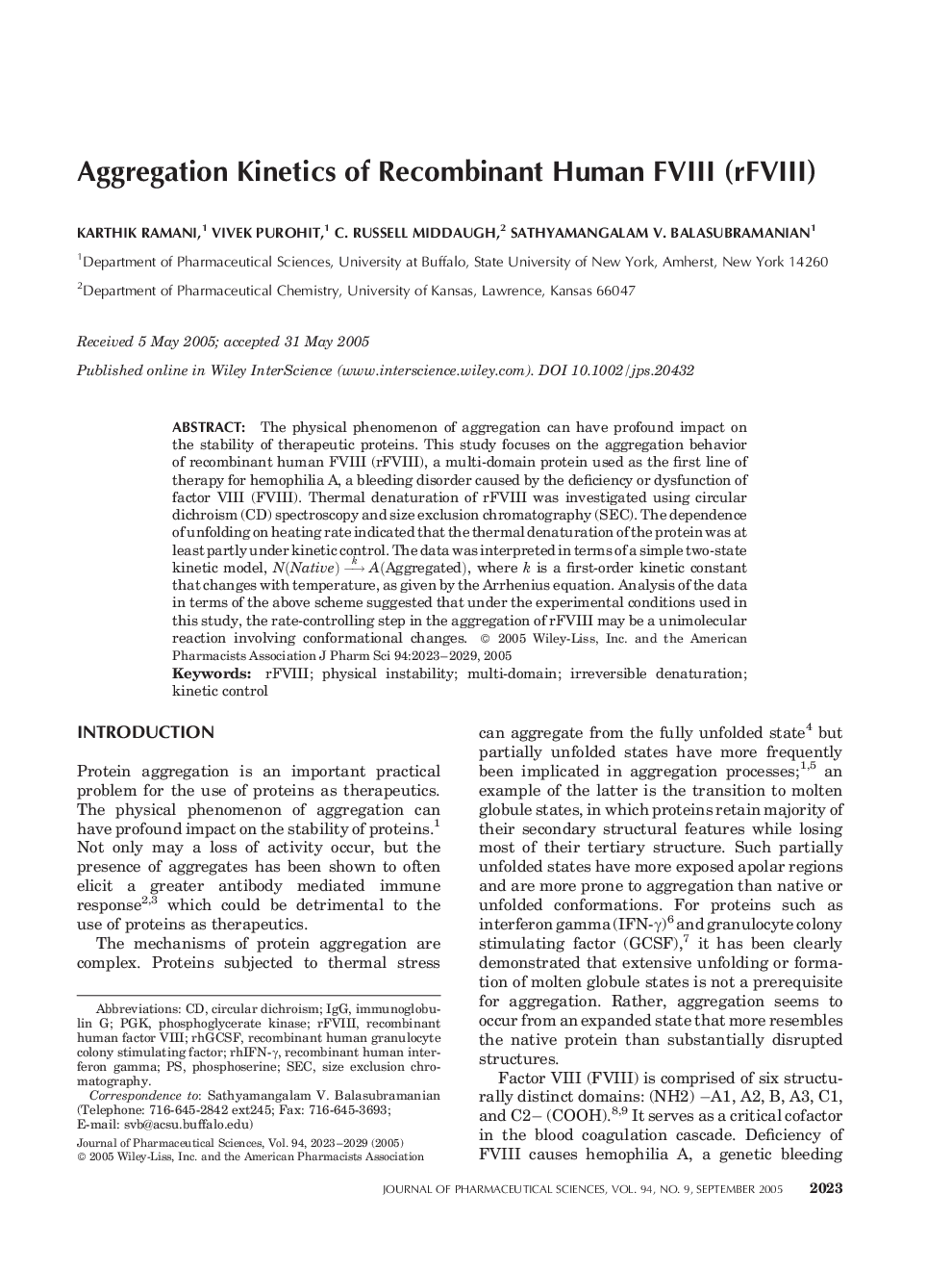| Article ID | Journal | Published Year | Pages | File Type |
|---|---|---|---|---|
| 2487297 | Journal of Pharmaceutical Sciences | 2005 | 7 Pages |
Abstract
The physical phenomenon of aggregation can have profound impact on the stability of therapeutic proteins. This study focuses on the aggregation behavior of recombinant human FVIII (rFVIII), a multi-domain protein used as the first line of therapy for hemophilia A, a bleeding disorder caused by the deficiency or dysfunction of factor VIII (FVIII). Thermal denaturation of rFVIII was investigated using circular dichroism (CD) spectroscopy and size exclusion chromatography (SEC). The dependence of unfolding on heating rate indicated that the thermal denaturation of the protein was at least partly under kinetic control. The data was interpreted in terms of a simple two-state kinetic model, N(Native)âkA(Aggregated), where k is a first-order kinetic constant that changes with temperature, as given by the Arrhenius equation. Analysis of the data in terms of the above scheme suggested that under the experimental conditions used in this study, the rate-controlling step in the aggregation of rFVIII may be a unimolecular reaction involving conformational changes. © 2005 Wiley-Liss, Inc. and the American Pharmacists Association.
Related Topics
Health Sciences
Pharmacology, Toxicology and Pharmaceutical Science
Drug Discovery
Authors
Karthik Ramani, Vivek Purohit, C.Russell Middaugh, Sathyamangalam V. Balasubramanian,
